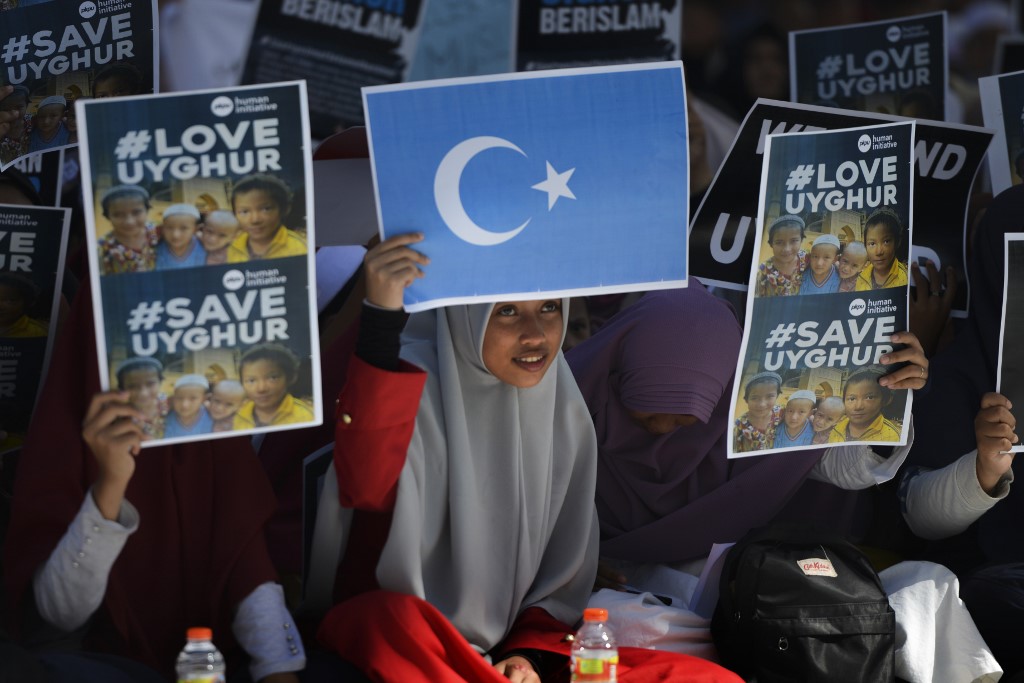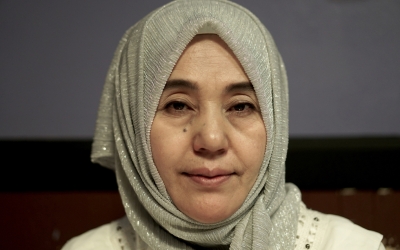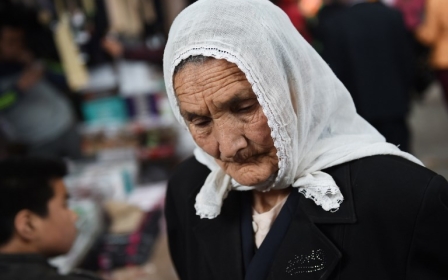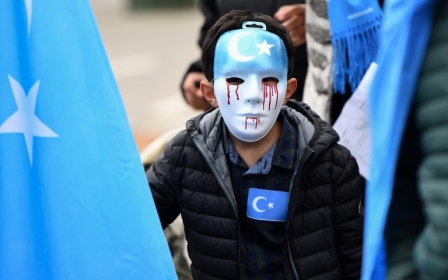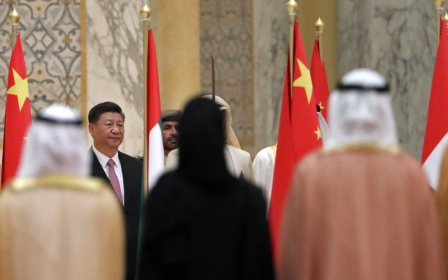Why is the world sitting idly by as China persecutes Uighur Muslims?
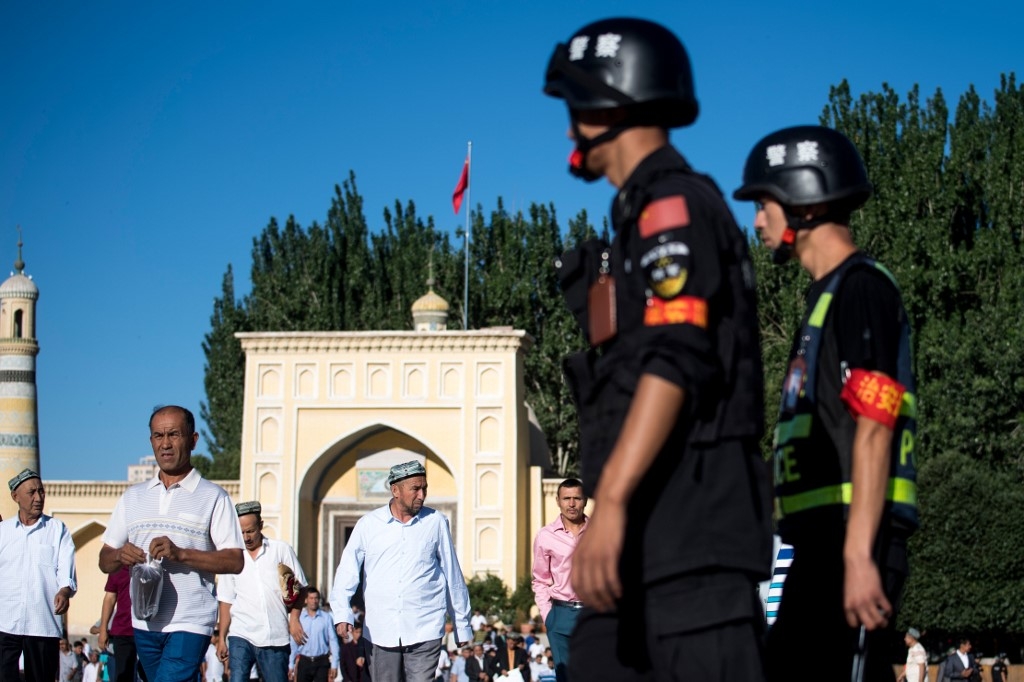
When China began its crackdown on Uighur Muslims in 2016 in the northwestern province of Xinjiang, a territory that lies at the heart of its Belt and Road grand economic strategy, human rights organisations estimated the number of detained Muslims to be in the hundreds of thousands.
Three years later, the number of Muslims being held in China’s vast network of concentration camps has ballooned to three million, according to comments made by a top Pentagon official last month.
“Our concerns are significant when it comes to the ongoing repression in China. The Communist Party is using the security forces for mass imprisonment of Chinese Muslims in concentration camps,” Randall Schriver, the assistant US defence secretary for Indo-Pacific security affairs, noted on 3 May.
Concentration camps
To be clear, upwards of three million Muslims are being held against their will in a network of Chinese concentration camps - not because any of them have committed a crime, but rather because they’re deemed by China to be a pesky minority.
New MEE newsletter: Jerusalem Dispatch
Sign up to get the latest insights and analysis on Israel-Palestine, alongside Turkey Unpacked and other MEE newsletters
A self-evident reminder that the current year is 2019, not 1944 - but if the words “never again” are to mean anything again, now or in the future, the international community should immediately begin making moves to identify China’s Communist Party as the equivalent of the worst totalitarian regimes the world has witnessed in the mid-20th century.
There have been accounts of systematic torture, rape, forced sterilisation programmes [and] forced marriages
The trickle of personal accounts and testimonies emerging from China suggest that the human rights violations being carried out within these concentration camps are heinous and horrific.
There have been accounts of systematic torture, rape, forced sterilisation programmes, forced marriages of Uighur women to Han Chinese men, forced adoptions of Uighur children to Han Chinese families, public executions, and even evidence pointing to the harvesting of live organs.
Organ harvesting
When I recently interviewed Enver Tohti, a former oncology surgeon who fled to the United Kingdom as an asylum seeker in 1998, he told me how he was instructed to remove the liver and two kidneys from a Uighur political prisoner in 1995, making it the first known case of China’s live organ harvesting programme, according to a report presented to the British parliament in 2016, titled “Bloody Harvest/The Slaughter”.
Earlier this year, a UK panel concluded that the evidence to have emerged during its investigations into China’s live-organ harvesting programme was so “overwhelming”, it took the “unusual step” of releasing interim findings before its final ruling, in hopes that “the oxygen of publicity given to the allegations made and supported to the extent they are by our interim judgment, may allow the real oxygen of life to continue life itself in some who might otherwise be killed”.
Despite mounting evidence against China - which not only includes thousands of personal testimonies, and even satellite imagery - the Communist Party continues to defend its network of concentration camps, claiming they’re for vocational and educational purposes. This claim is flatly absurd, given that Uighur intellectuals, journalists and academics were among the first to be targeted for arrest.
Arapat Erkin, an Uighur refugee in the United States, told me how his father, an award-winning journalist and TV producer for a Chinese government media outlet, was imprisoned for 11 years on the charge of being a Muslim who produced a documentary on the financial struggles of three Uighur students - a claim supported by the Committee to Protect Journalists.
‘I could do nothing’
Sayragul Sauytbay, a former Chinese government employee at a camp in Xinjiang, recently described to CNN the horrors she witnessed.
“I knew that all people there were not guilty of anything,” she said. “I could do nothing to help them avoid suffering. That’s why I decided that one day I would publicise what’s happening there … China has lied to the international community when it said these are not concentration camps, not prisons, and that they are teaching Muslims skills and trades. That’s not true at all because I saw it with my own eyes.”
Again, this is 2019 - yet the international community is sitting idly by as China carries out what can only be described as the world’s largest-scale persecution of a religious minority since the Holocaust.
The fact that not a single leader of a Muslim-majority country has spoken out forcibly against China tells you everything about the international system we know today - one in which geostrategic interests, trade deals and realpolitik supersede the value of human life.
The views expressed in this article belong to the author and do not necessarily reflect the editorial policy of Middle East Eye.
Middle East Eye delivers independent and unrivalled coverage and analysis of the Middle East, North Africa and beyond. To learn more about republishing this content and the associated fees, please fill out this form. More about MEE can be found here.



